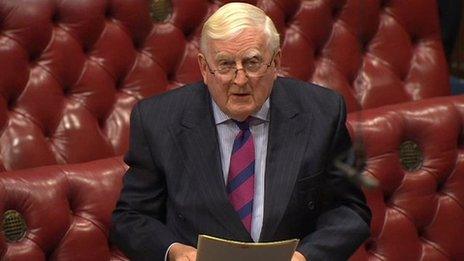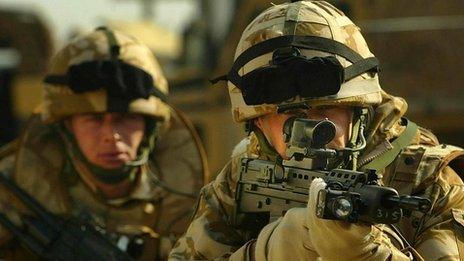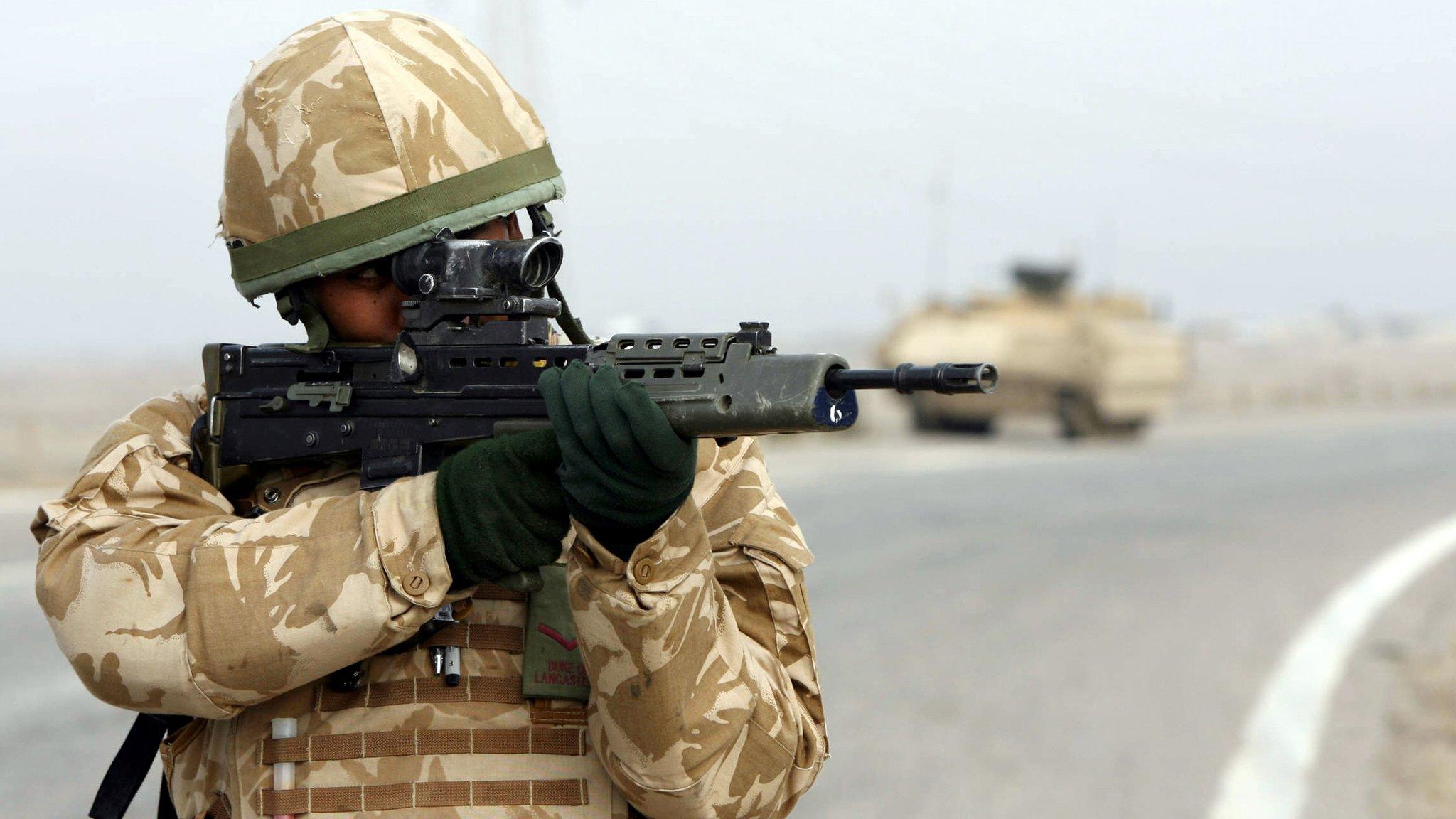Delays to Iraq Inquiry 'threaten justice'
- Published

Lord Morris said past undertakings about the disclosure of documents were at risk of being broken
Delays in publishing the Iraq Inquiry report risk "denying justice" to the public, an ex-attorney general says.
In a parliamentary debate, external, Lord Morris of Aberavon demanded to know who was responsible for the hold-up in the Chilcot Inquiry, which began in 2009.
Talks with civil servants are going on about whether the inquiry can include sensitive documents about the run-up to the 2003 war in its conclusions.
Lib Dem minister Lord Wallace said he regretted the process was so prolonged.
He told peers that he hoped the report - which is looking into the UK's participation in the 2003 invasion which toppled Saddam Hussein and its aftermath - would be made public in the "foreseeable future".
'Learn lessons'
The Chilcot Inquiry held its last public hearing in 2011 and although it has never set a deadline for publication, it was widely expected that the report would have been released by now.
Lord Morris, who was attorney general in the Labour government of Tony Blair between 1997 and 1999, said he was concerned about the length of time it was taking.
"Who is responsible for the delay and what precisely are the reasons for that?" he asked during the Lords debate.
"Public inquiries are set up to deal with public disquiet, to establish facts and to learn lessons and not to publish is to undermine the whole object. Delay is unjust and justice to the public is denied."
In November, Sir John Chilcot said the next phase of the inquiry's work was "dependent on the satisfactory completion of discussions" about the disclosure of material that the inquiry wishes to include in its report.
No agreement had yet been reached on the "most difficult" categories of documents, he said, although it has been reported that progress has been made since.
'Stately pace'
Discussions have revolved around 200 cabinet-level discussions, 25 notes from former Prime Minister Tony Blair to US President George W Bush and more than 130 records of conversations between either Mr Blair and his successor Gordon Brown and President Bush.
Speaking on Tuesday, crossbench peer Lord Elystan-Morgan said it was "essential" these papers were published.
But Labour peer Lord Liddle, who worked in No 10 at the start of the 2003 war, said the inquiry had seen all the evidence but publication was a different matter.
"If we see ourselves as America's closest ally, what obligation does that place on us to protect confidences in that relationship?" he asked.
Lord Wallace of Saltaire said discussions were continuing between government departments over the "large issues" relating to national security and diplomatic relations and he backed the cabinet secretary's role as the ultimate arbiter over what documents could be published.
He added: "I regret it has taken longer than we hoped and I very much hope it will be concluded soon... and we will then proceed at the normal stately but sure pace of government publications to a publication of the final report."
- Published6 November 2013

- Published21 April 2015
